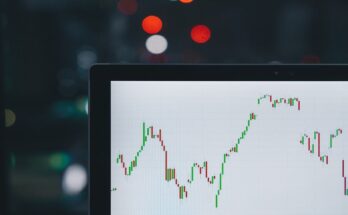In opening a brokerage account, you have the choice to either set up a cash account or a margin account. Both will provide you access to various investment options, although a margin account offers additional benefits and allows you to buy more securities with borrowed money from your broker.
To help you decide, here’s what you need to know about a cash account and a margin account.
Understanding Cash and Margin Account
To help you figure out which brokerage account is suitable for you, you first need to understand how a margin and cash account works.
A cash account only uses what you have in your account to buy securities. So if you put, let’s say, $3,000 in your account, you can buy $3,000 worth of securities. If you plan to invest further, you can put more cash in your account or sell some of your holdings.
With a margin account, you use your own money to fund your account, and you also take out a loan from your broker. Also called margin trading, this method will allow you to invest in more securities than you can with your own money alone, raising your purchasing power and potential profits.
Risks to Consider: Cash vs. Margin Account
Cash accounts are less risky than margin accounts, as your potential losses are typically limited to the amount you invested. For example, if you invested $4,000 in securities, you are only at risk of losing $4,000, nothing more.
On the other hand, while a margin account can provide more options and opportunities, it is a strategy that carries some serious risks. That is because margin trading uses leverage, meaning it can increase your purchasing power and potential profits as well as your potential losses.
If the value of your margined securities decline, not only do you incur losses, but you also need to worry about paying the money you borrowed from your broker, which includes a monthly interest.
Margin loans usually don’t have a fixed repayment schedule. However, it would be good to repay your loan as soon as possible, as the monthly interest being charged on you will only continue to grow.
Additionally, brokerages require investors to keep the equity in their margin account on or above what is called the maintenance margin.
Otherwise, it would cause a margin call, which is a notice from your broker telling you to immediately deposit more cash in your account, as there is a deadline to meet the maintenance margin requirement. Failure to do that on time will result in a forced liquidation of the investments in your account.
A margin call is the biggest risk of margin trading, as it would require you to find more cash to keep your position. This type of risk is not a problem with cash accounts, which only need a one-time, up-front cash investment.
Choosing Between Cash and Margin Account
A cash account will be enough to meet your basic needs if you’re a new investor. Opting for a margin account when you’re a beginner would not be ideal at the moment. You’re better off not venturing into margin trading if you’re a first-time investor.
Margin accounts help investors short-sell stocks, meaning they generate returns from dropping stock prices. Considering that it allows that type of approach, margin trading is a strategy that best fits experienced investors.
Still, a margin account offers some flexibility that may come in handy during a difficult situation. While margin trading comes with severe risks and is only suitable for advanced investors, having a margin account so you gain financial flexibility in the short term may provide the best of both worlds.




